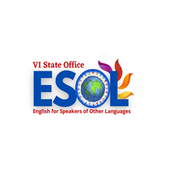English Learner Tool Kit
(View Complete Item Description)The U.S. Department of Education’s Office for Civil Rights (OCR) and U.S. Department of Justice (DOJ) released joint guidance on January 7, 2015, reminding states, school districts, and schools of their obligations under federal law to ensure that English Learners (ELs) have equal access to high-quality education and the opportunity to achieve their full academic potential. In this context, the Office of English Language Acquisition (OELA) at the U.S. Department of Education (the Department) is pleased to provide the English Learner (EL) Tool Kit, a companion to the OCR’s and DOJ’s “Dear Colleague Letter” (DCL). The tool kit is designed to help state and local education agencies (SEAs and LEAs) in meeting their legal obligations to ELs and in providing all ELs with the support needed to attain English language proficiency while meeting college- and career-readiness standards. The EL Tool Kit is intended primarily for state, district, and school administrators, as well as teachers, but may also inform other stakeholders concerned with the education of ELs (U.S. Department of Education, Office of English Language Acquisition. (2016). English Learner Tool Kit (Rev. ed.). Washington, DC: Author.
Material Type: Primary Source















